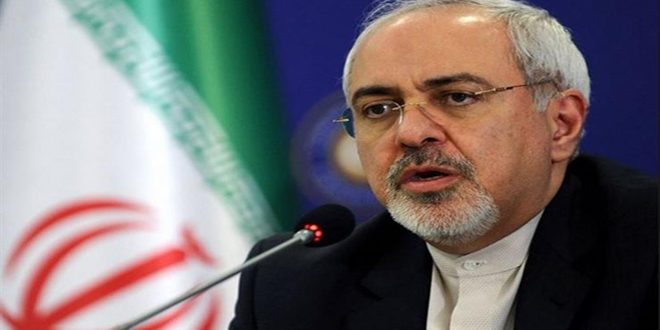Iranian Foreign Minister Mohammad Javad Zarif on Saturday accused Western leaders and the International Atomic Energy Agency of hypocrisy in targeting Iran’s nuclear program, while ignoring Israel’s.
Zarif tweeted a link to a recent report in the UK’s Guardian newspaper claiming that Israel’s top-secret nuclear research facility near the southern city of Dimona is undergoing a major expansion.
“Israel is expanding Dimona, the region’s only nuclear bomb factory,” Zarif wrote, tagging US President Joe Biden, the IAEA, UK Prime Minister Boris Johnson, French President Emmanuel Macron and German Chancellor Angela Merkel.
Israel has never acknowledged that it has a nuclear arsenal, instead maintaining a policy of “nuclear ambiguity” while vowing that it will not be the first to use nuclear weapons in the Middle East.
Zarif’s comments come as IAEA inspectors continue to probe Iranian nuclear sites and the Biden administration works to get Iran back to compliance with the Iran nuclear deal.
IAEA inspectors found uranium particles at two Iranian nuclear sites that Iran tried to block access to, according to a Friday report.
Iranian authorities had stonewalled the inspectors from reaching the sites for seven months before the inspection, and Iranian officials have failed to explain the presence of the uranium, the Reuters news agency reported, citing diplomats familiar with the UN agency’s work.
The inspections took place in August and September of 2020, the report said. The IAEA keeps its findings secret and only shared the details of the find with a few countries.
The Reuters report did not identify the sites. Earlier reports said one of the sites was in Abadeh, south of Isfahan — a location that in September 2019 was flagged by Prime Minister Benjamin Netanyahu as the site of an alleged secret nuclear facility. Iran denies that it seeks nuclear weapons; Netanyahu is adamant that the regime is lying to the world, and has said that a trove of nuclear documents concerning its rogue program, smuggled out of Tehran by the Mossad two years ago, proves Iran’s duplicity.
The sites the inspectors visited are believed to have been out of use for years. The IAEA and Western intelligence services all believe Iran had a clandestine nuclear weapons program until 2003, though Tehran denies ever attempting to obtain such weapons.
Enriched uranium can be utilized as part of the core of a nuclear weapon, and Iran is required to account for all of its uranium so inspectors can make sure it is not being used for weapons.
The findings, and Iran’s failure to explain them, may complicate the Biden administration’s efforts to resume negotiations with Iran. The new administration has repeatedly said it is willing to return to a “longer and stronger” version of the deal, if Iran first returns to compliance.
The landmark 2015 deal between Iran and the United States, China, Russia, the UK, France, and Germany to curb Tehran’s nuclear ambitions has been largely in tatters since former US president Donald Trump withdrew from it in 2018 and reimposed harsh sanctions on the Islamic Republic.
Iran has since been steadily violating restrictions on the amount of uranium it can enrich and the purity to which it is allowed to enrich the material, as well as other limitations.
The White House formally announced on Thursday it was ready to resume discussions on the Iranian nuclear program, and US President Joe Biden said Friday in his first major foreign policy speech that his administration was ready to “reengage in negotiations” and also address Iran’s “destabilizing activities” in the Middle East.
Iran has demanded that the US lift sanctions before it returns to talks. It has also rejected discussing other issues, such as its regional activities.
Israeli leaders, including Netanyahu, have long opposed the nuclear agreement and repeatedly warned against the US returning to the deal.
In a statement Friday afternoon, Netanyahu said Israel believes the old agreement will “pave Iran’s path to a nuclear arsenal.”
Meanwhile, the Guardian report on Thursday, said the construction work at Dimona is visible in satellite imagery published by an independent expert group.
The section of the complex under construction is several hundred meters (yards) from the complex’s reactor and reprocessing plant, and the purpose of the construction is not known, the report said.
A researcher with the International Panel on Fissile Material, which first noticed the construction in the satellite images, told The Guardian that the construction appeared to have started in early 2019 or late 2018.
Israel’s Dimona nuclear research facility is officially called the Shimon Peres Negev Nuclear Research Center.
Source : The Times Of Israel







